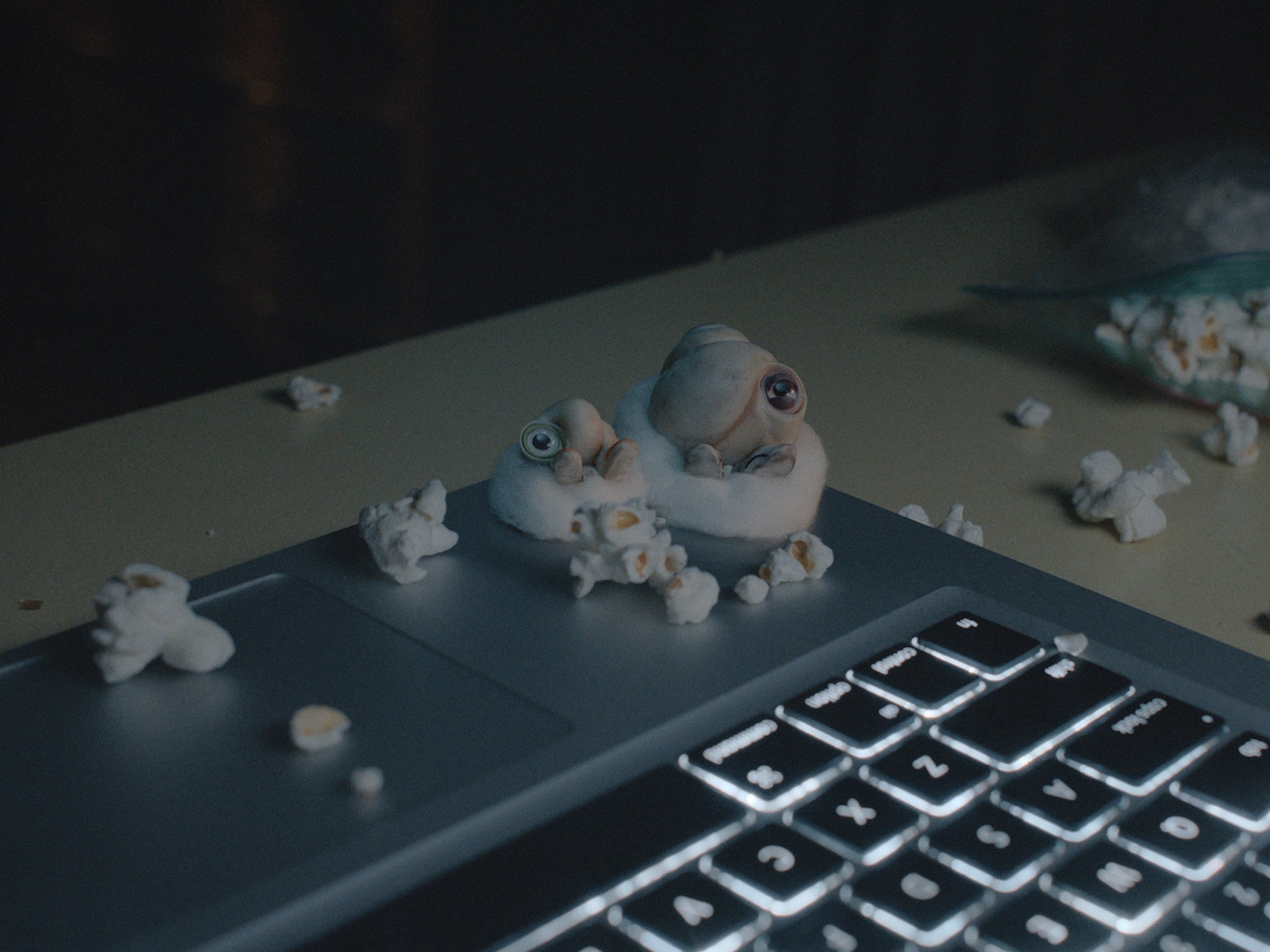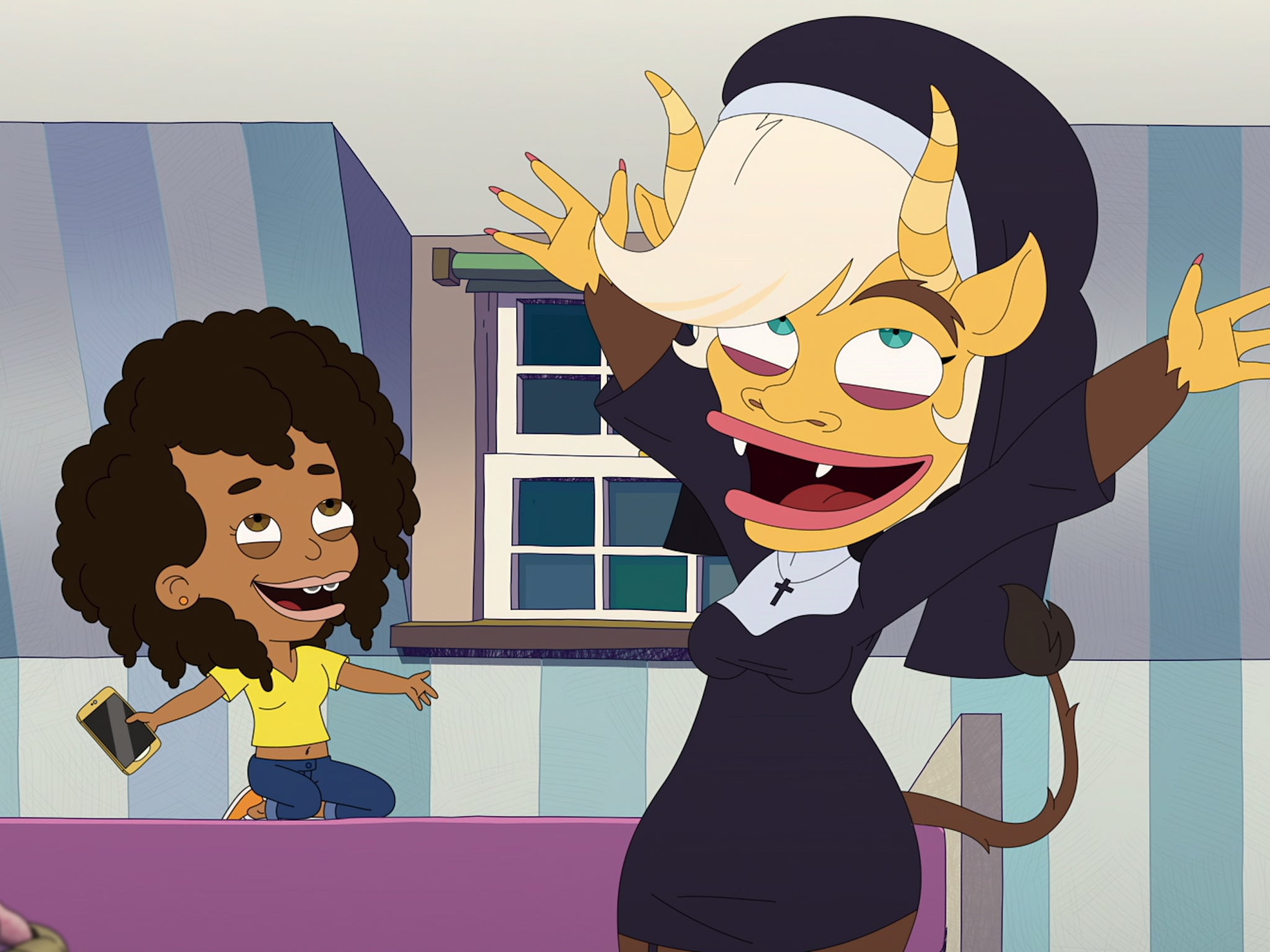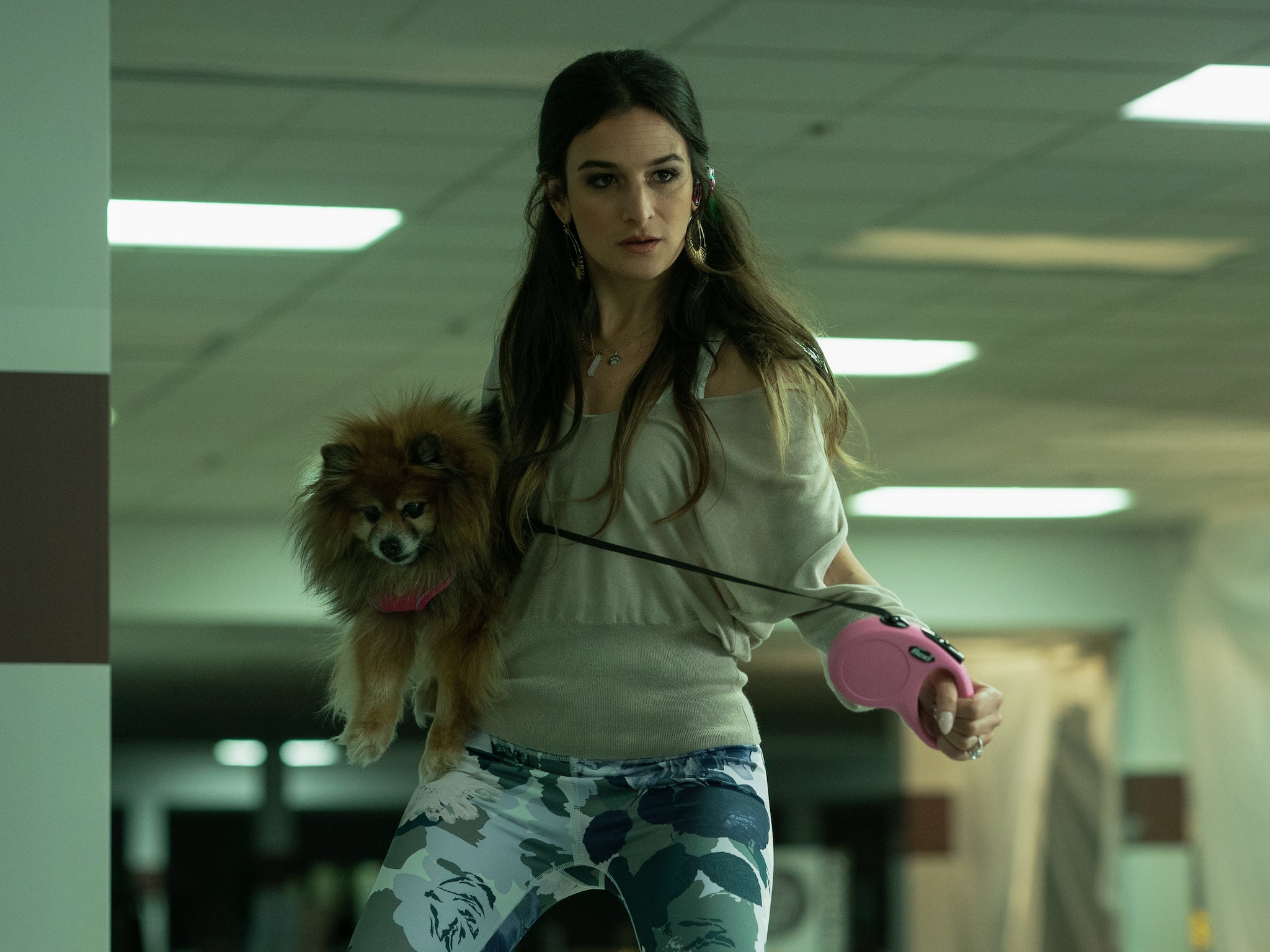‘I felt really sad, beaten down, and restricted after Saturday Night Live’: Jenny Slate on grief, opportunity, and why she made a film about a cute talking shell
The American comedian talks to Annabel Nugent about finding her voice and facing controversies


Your support helps us to tell the story
From reproductive rights to climate change to Big Tech, The Independent is on the ground when the story is developing. Whether it's investigating the financials of Elon Musk's pro-Trump PAC or producing our latest documentary, 'The A Word', which shines a light on the American women fighting for reproductive rights, we know how important it is to parse out the facts from the messaging.
At such a critical moment in US history, we need reporters on the ground. Your donation allows us to keep sending journalists to speak to both sides of the story.
The Independent is trusted by Americans across the entire political spectrum. And unlike many other quality news outlets, we choose not to lock Americans out of our reporting and analysis with paywalls. We believe quality journalism should be available to everyone, paid for by those who can afford it.
Your support makes all the difference.Jenny Slate is not a controversial figure. The Boston-raised actor’s particular brand of comedy can be physical and absurdist and sometimes confessional. For the most part, it’s not contentious stuff. It’s surprising, then, that Slate has found herself caught in the slipstream of vast cultural currents. In 2009, she accidentally let the F-word slip during her Saturday Night Live debut. Three years ago, she chose to step down from her role voicing a biracial character on a Netflix hit show. Then, last summer, she made a scene-stealing, though somewhat divisive, appearance in Oscars contender Everything Everywhere All at Once. It’s hard to believe that her latest film, about an adorable anthropomorphic shell who cares for his elderly grandma, will cause any kind of kerfuffle.
If you don’t know Slate by name, you’ll know her voice. It has a distinct nasal rasp, equal parts throat and nose. But it’s also bright, like someone has maxed out the treble. That same voice chirps “Hello!” over video call from Los Angeles, a place befitting of her sunny mien. Whether Slate is on-screen (in TV shows like Parks and Recreation and House of Lies or in her new Amazon film I Want You Back ) or lending her voice to Harley Quinn in Lego Batman and a bitchy eighth grader in Bob’s Burgers, there is something unmistakable about that voice. You know it’s her. The same can’t be said of Marcel the Shell with Shoes On, however. For once, Jenny Slate sounds nothing like herself.
The 40-year-old’s recent output is intimate in a way her earlier work wasn’t. Her 2019 Netflix special spliced together stand-up with home videos of Slate trying on her grandmother’s old dresses. Little Weirds, a memoir-in-essays, pressed on bruises both political and personal. The somewhat surprising coda to this triptych of self-discovery is Marcel the Shell with Shoes On, a story about, well, a shell who wears shoes. The one-inch-tall stop-motion mollusc has been kicking around in his Polly Pocket shoes since 2010, when Slate and her then husband Dean Fleischer Camp uploaded a video to YouTube showcasing Marcel’s sweet brand of quiet optimism (“Some people say my head is too big for my body and then I say, compared to what?”). The clip has 33 million views and was followed by two shorts and two books. Now, Slate and Camp have brought their little creation to the big screen.
A lot happened in those 12 years. They managed to wrangle Isabella Rossellini to voice Marcel’s foggy-eyed Nana Connie, who is an homage to Slate’s own grandmothers: named after one, and inspired by the other, a Holocaust survivor named Rochelle. For the stop-motion, they enlisted award-winning animator Kirsten Lepore. And they got divorced. How do you split custody of a talking shell? The solution, it turns out, was easy. “Dean and I splitting apart was so sad but getting the film was an exchange and it was a better exchange,” she says. Camp directed the film and co-wrote it alongside Slate. Business as usual, really. “We’re way happier as creative partners and we can still keep all of the things that we wanted to keep, like our deep respect for each other’s artistry and point of view, and a careful behaviour around each other’s hearts and feelings.” Slate has since remarried, tying the knot with writer Ben Shattuck in 2021.
In conversation, Slate embodies the same sanguine fatalism as Marcel, which might explain her interest in astrology. She is a big believer in silver linings. Take her divorce; she lost a husband but gained a creative partner. “My life has been filled with examples of grief paired with opportunity but you have to choose to take it,” says Slate. “I’ve seen myself over and over, standing in a doorway,” she pauses. “Crying in a doorway, watching something go before realising that right on the horizon line, as that thing is leaving, there is a little figure of something walking towards me.” What a lovely image; I tell Slate that I’ll try to remember it. “I want to remember it!” she laughs, adding that she can’t recall half the things she has said herself.
Saturday Night Live is an early example of Slate crying in a doorway. After graduating from New York’s Columbia University and cutting her teeth on the improv circuit, Slate landed that dream spot on SNL in 2009. It was her first and last season. “I did feel heavily critiqued at the time as a performer and a comedian after a year on SNL,” she says. Her Twitter experience was awful. “I had never really had people directly judging me or criticising me. I just... I’m a very sensitive person, like many people are, and I just felt really sad. I felt really beaten down. I felt very restricted. I felt very unwilling to move freely in my own imagination.” In that brief time, though, Slate managed to leave a mark when she accidentally dropped the F-bomb in her first episode – a big (and illegal) no-go for TV before 10pm in the States. Contrary to rumours at the time, it wasn’t the reason she was let go.
It was around then that Slate conceived of Marcel. In a literal sense, he was born during a weekend away at a friend’s wedding. Slate and Camp, then dating, were sharing a hotel room with friends. It was cramped and messy. Slate began to gently air her grievances to her untidy bunkmates in a squeaky, melancholic voice that she later named Marcel. In a much larger sense, Marcel was a response to Slate feeling small. Both in that hotel room and her career. “I had lost so much confidence and felt like I was waiting for permission to be funny.”
But then came the exchange. “I felt grief leaving SNL, but it also made me double down on my own specific voice as a stand-up comedian because that was all I had left.” Slate knew her voice could thrive, only “not in the space or community that I had been in that year”. It was a gentler humour; it was Marcel. “I think most people would agree that trying to change something that should be accepted is only going to make you suffer.” A funny-looking anthropomorphic shell might’ve been just the thing to secure Slate a second season on SNL, but she’s glad it didn’t. “Luckily, I didn’t think of Marcel when I was on SNL because I don’t think we would have ever made this movie if I had done that. And then he wouldn’t have belonged to me. He would have belonged to NBC.”

There is something liberating about the fact that Marcel sounds and looks nothing like Slate. “My own experience as a person with this body in the world that I live in... there are laws against the functions of my body and what I choose to do with my body,” she says. “There are violent acts against the body constantly in our world and if you’re a woman, or a person identifying as a female, there is just so much obvious disrespect towards you and whether or not you can even choose normal things for your body and your health.” Last year, Slate – who in 2014 turned in a stirring performance in the “abortion romcom” Obvious Child – spoke out against the Supreme Court’s decision to overturn Roe v Wade. She called the decision “outrageous and dangerous”.

Watch Apple TV+ free for 7 days
New subscribers only. £8.99/mo. after free trial. Plan auto-renews until cancelled

Watch Apple TV+ free for 7 days
New subscribers only. £8.99/mo. after free trial. Plan auto-renews until cancelled
“While as a person and a human being, it’s really important to figure out where you stand and what you want to fight for, it’s also a wonderful thing as an artist to just completely step out,” she says. “The beauty of Marcel is that something in me is able to let go so that I can work things out.” It works in reverse, too. Spoken by a boyish shell with a googly eye and a puff of lint for a pet, Slate’s words are more likely to be heard. “You are just taking it in without judging them or placing them within the context of a gendered individual.” Like a disguise? She nods, “and the one thing I’ll add to that is a disguise doesn’t need to be a trick. A disguise can be a wonderful tool to make people more open.”
Some endings are easier to grieve than others. In 2020, Slate announced that after three years, she would no longer be voicing the character of Missy on Netflix’s adult animation Big Mouth. In a lengthy Instagram statement, she wrote: “Black characters on an animated show should be played by Black people.” Making the decision to leave Big Mouth was sad, says Slate, but it was clear. “I assessed the choices I made and I knew that they were wrong. I wanted to depart and make space for performers who should be playing the part I was playing.”

Slate cites the “general feeling of grief” in the US at the time and the long overdue discussions prompted by the murder of George Floyd. “I think for white people those discussions were difficult because, at least for me as a white person, it was about finding a way to get past [those feelings of] useless shame and start to be a person who is learning what I need to learn and what I should have learned before, and is taking an action that is in line with the world I want to be in,” she says. In the end, “we all agreed that it was the right thing to do”.
At this point, Slate becomes distracted by something off-screen for a moment before apologising. “Sorry, I just saw my baby coming in. She’s asleep so I’m just going to be quiet.” We spend the rest of our time chatting in a hushed register. Slate is a pandemic parent, having given birth to her daughter Ida (whose name swings from her neck engraved on a gold heart pendant) in 2021.
Marcel isn’t the only Oscar-nominated feature that Slate is attached to this year. She had a small role in Everything Everywhere All at Once. The kaleidoscopic action sci-fi flick by Daniel Kwan and Daniel Scheinert is feted with 11 nominations, two more than any other movie. Slate plays a yoga pants-wearing dog lover who goes head-to-head with Michelle Yeoh’s Evelyn. “I was very intimidated,” says Slate. Yeoh is a martial arts icon whose physical strength is matched by her grace; Slate, by her own admission, is “very gangly and uncoordinated”. “I was really shy, but she never made me feel ashamed of the fact that I have zero skill when it comes to physical stuff.”

If the Oscar nods didn’t tip you off, Everything Everywhere... was a hit. Some people, however, criticised Slate’s character – who embodied every bit of the Jewish American Princess stereotype – as antisemitic. She was originally credited only as Big Nose, a term Evelyn uses to refer to her in the film. The Daniels have since explained that “Big Nose” is often used in Chinese culture to refer to white people in general but admitted their mistake.
For her part, Slate shuts down speculation that there was any ill intention behind the writing. “They explained it to me,” she says. “They explained it to me right away, so I never felt it was antisemitic.” The Daniels sent Slate an email when the controversy first reared its head. “I’m not on social media much so they made me aware of it, like, ‘There’s this discussion and it sort of breaks our hearts that you would ever feel that there was something antisemitic or that we were commenting on you, or saying that you’re not beautiful’,” she recalls. “And I was like, ‘You guys explained this to me right away. I thought it was funny’.” Slate understands how the character could be read that way. But “on my end, I was always very clear and I made the decision to play the character knowing what the name or non-name was.” Her credit has since been changed to “Debbie the Dog Mom”.
Everyone has a hero they aspire to be like. For Slate, Marcel is that hero. Or at least one of them. “It’s his state of mind,” she says. “That’s what I love about Marcel. It’s so alluring that there is someone out there who lives his life in that way.”
‘Marcel the Shell with Shoes On’ is in cinemas



Join our commenting forum
Join thought-provoking conversations, follow other Independent readers and see their replies
Comments